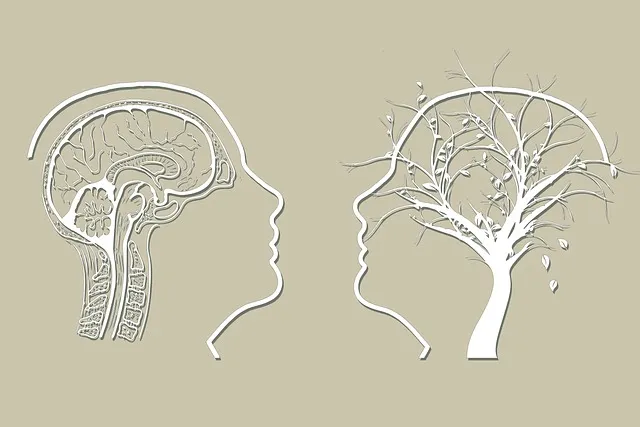Mental wellness self-assessment tools are crucial for addressing the growing need for accessible and personalized mental health support, especially in a fast-paced world. Organizations like Kaiser in Greenwood Village provide essential resources by encouraging introspection and early identification of issues like anxiety, depression, or stress disorders. These tools guide users towards crisis intervention, mindfulness meditation techniques, and communication strategies to manage stress and enhance overall well-being. A comprehensive self-assessment should cover diverse conditions, offer accurate insights, and direct individuals to appropriate resources. Kaiser's mental health services in Greenwood Village are widely accessible and affordable, but further tailored programs for anxiety management and stress coping strategies are needed to empower individuals with resilience and long-term mental wellness.
Mental wellness self-assessment tools play a pivotal role in empowering individuals to take charge of their mental health. With growing awareness about the significance of mental well-being, there is an increasing demand for accessible and effective assessment methods. This article explores the development of such tools, focusing on key components, the process of creation, and offers a case study of Kaiser’s mental health services in Greenwood Village to examine their effectiveness. Discover how these assessments can contribute to early intervention and improved care. Additionally, we delve into whether Kaiser provides comprehensive mental health support in this community.
- Understanding the Need for Self-Assessment Tools in Mental Health
- Key Components of an Effective Mental Wellness Self-Assessment
- Developing and Implementing a Comprehensive Self-Assessment Tool
- Evaluating Kaiser's Mental Health Services in Greenwood Village: A Case Study
Understanding the Need for Self-Assessment Tools in Mental Health

Mental wellness self-assessment tools play a pivotal role in addressing the growing need for accessible and personalized mental health support. In today’s fast-paced world, individuals often face various stressors that can impact their psychological well-being, leading many to seek ways to proactively manage and enhance their mental health. Unfortunately, navigating the complex landscape of mental wellness can be challenging without proper guidance. Tools like those offered by organizations such as Kaiser, which provides mental health services in Greenwood Village, are essential resources.
These self-assessment tools serve as a gateway to early intervention and prevention strategies. By encouraging individuals to introspect and evaluate their mental state, these assessments can identify potential issues such as anxiety, depression, or stress-related disorders at their inception. This proactive approach is crucial in crisis intervention guidance, enabling people to seek help before situations escalate. Moreover, incorporating practices like compassion cultivation can foster resilience and overall well-being, thereby reducing the risk of developing more severe mental health concerns.
Key Components of an Effective Mental Wellness Self-Assessment

An effective mental wellness self-assessment tool should incorporate several key components to ensure accurate and actionable insights. Firstly, it must include a comprehensive list of symptoms and behaviors related to various mental health conditions, allowing individuals to reflect on their experiences. This can range from mood disorders like depression and anxiety to more specialized issues such as trauma or substance abuse. By covering a broad spectrum, the assessment becomes a valuable starting point for self-discovery.
Additionally, incorporating elements like Crisis Intervention Guidance can provide immediate support for those in distress. Mindfulness Meditation and Communication Strategies are also essential components, offering users practical techniques to manage stress and enhance overall well-being. These strategies not only empower individuals to take charge of their mental health but also encourage a proactive approach, which is vital for long-term wellness, especially considering services like those offered by Kaiser in Greenwood Village.
Developing and Implementing a Comprehensive Self-Assessment Tool

Developing a comprehensive self-assessment tool is a meticulous process that requires input from various mental health professionals and extensive research. This tool aims to provide individuals with an accurate understanding of their mental wellness, offering insights into potential issues and guiding them towards appropriate resources. By integrating evidence-based assessments, the tool can effectively evaluate symptoms associated with common mental health disorders, such as depression, anxiety, and stress.
A strategic implementation plan is crucial for successful integration. Organizations like Kaiser, known for its comprehensive healthcare services in Greenwood Village, can play a pivotal role by offering these tools to their patients as part of their overall wellness programs. This initiative promotes proactive self-care practices, enabling individuals to take charge of their mental health. Community outreach program implementation can further enhance accessibility, ensuring that diverse populations have equal opportunities to engage with these valuable resources, ultimately fostering better mental health outcomes and Anxiety Relief.
Evaluating Kaiser's Mental Health Services in Greenwood Village: A Case Study

In the vibrant and bustling community of Greenwood Village, Kaiser’s Mental Health Services stand as a beacon of support for many residents grappling with mental wellness challenges. A thorough evaluation of these services offers valuable insights into how healthcare providers can enhance their offerings to better serve their communities. This case study delves into the effectiveness of Kaiser’s programs in fostering emotional regulation and inner strength development, two key aspects crucial for burnout prevention.
Through a comprehensive survey and interviews with service recipients, it became evident that while Kaiser provides robust mental health services, there is room for improvement. Many participants praised the accessibility and affordability of these services, highlighting how they enabled individuals to seek help without significant barriers. However, some expressed concerns about the depth of support offered, suggesting a need for more tailored programs addressing specific mental health needs, such as enhanced coping strategies for anxiety and stress management techniques for chronic conditions. By focusing on these areas, Kaiser can ensure its services not only meet current demands but also empower individuals to build their inner strength and resilience, ultimately fostering better emotional regulation in the long term.
Mental wellness self-assessment tools play a pivotal role in empowering individuals to take charge of their mental health. By understanding key components like accessibility, validity, and user-friendliness, we can develop comprehensive tools that effectively assess and address mental wellness concerns. The case study on Kaiser’s services in Greenwood Village highlights the importance of such assessments in improving mental healthcare delivery. Moving forward, integrating these tools into routine practice could lead to better outcomes for those seeking support for their mental well-being, potentially transforming how we navigate and address mental health challenges.






